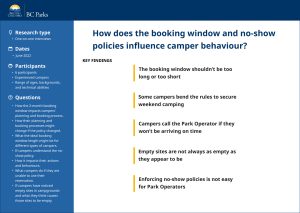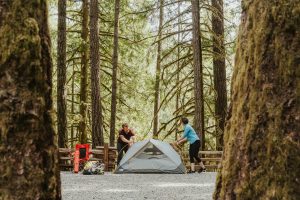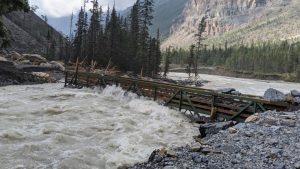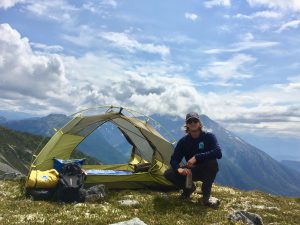Safe campfire tips
Categories:
Sitting by a crackling campfire is always a highlight of camping, but campfires (if handled inappropriately) can pose a significant risk to us and the environment. If you’re camping at a BC Parks campsite, or venturing out to your own secret spot, here is what you need to know for campfire safety on your next camping trip!
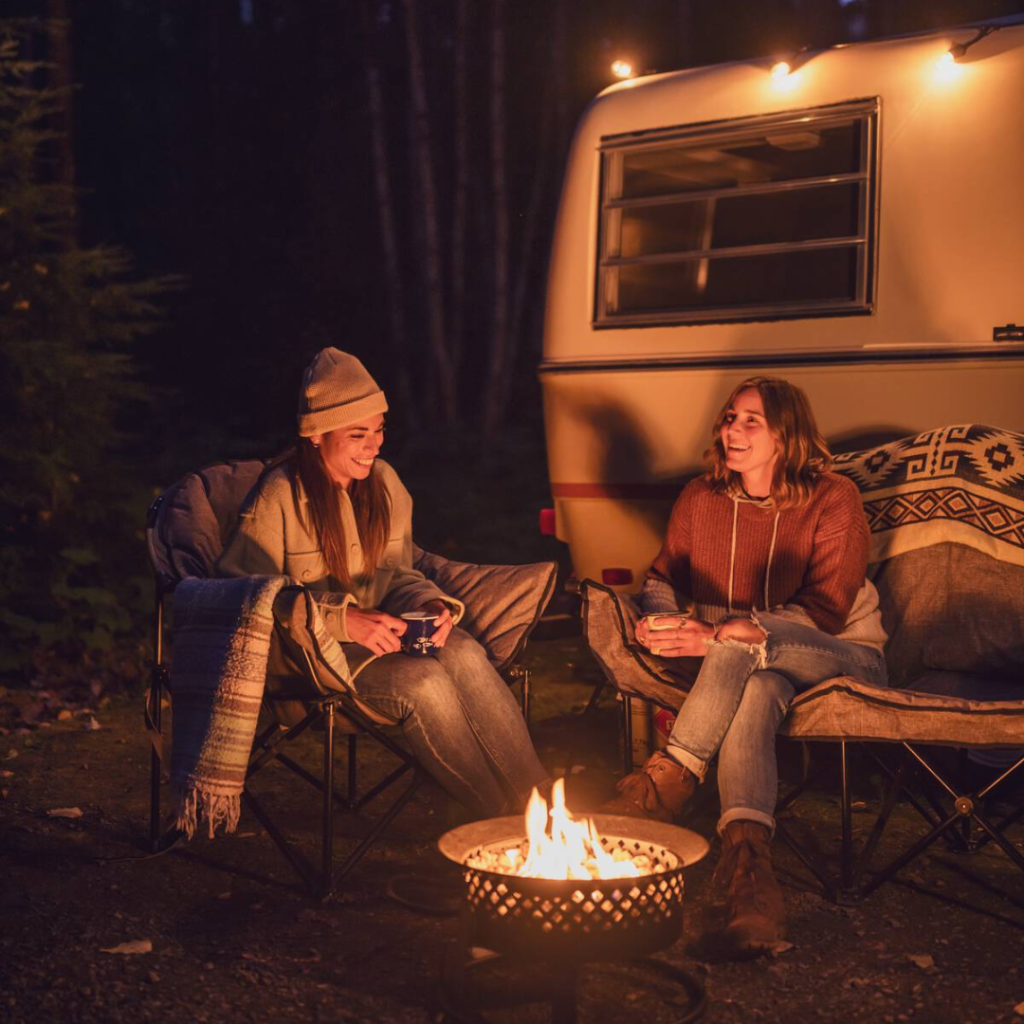
Summertime is officially here! For many British Columbians, that means shaking off our tents, packing up a cooler, and heading out for weekend camping trips. Campfires are an important aspect of camping; they are a place to tell stories, sing songs, and even roast some yummy treats. But, as the temperatures get warmer, the risk of wildfires get higher – which means having safe campfires is more important than ever.
Before assembling your fire, check to make sure there isn’t a campfire ban in your area. You can do this by going to the BC Wildfire Service’s homepage and checking out what fire bans are in effect. These prohibitions apply to all public and private land, unless specified otherwise – for example, in a local government bylaw. Please check with local government authorities for any other restrictions and assess conditions before lighting any fire.
If there isn’t a fire ban, you’re off to a good start! You may start assembling your fire in the pre-approved fire-rings or pits. Please don’t collect any materials in the park to burn. And to prevent the transportation and spread of invasive species, it’s best to buy your firewood in the area where you are camping. Make sure you also have all important safety equipment and tools handy. These include a lighter or matches, shovel, hatchet, bucket, and water (8 litres is recommended).
Once all nearby debris is cleared, you can start building your fire. You want to ensure that the fire always remains supervised and under control. Once the fire is lit, it should never exceed 0.5 metres tall, or 0.5 metres in diameter. If you’re camping with small children and pets, always make sure they are supervised around the campfire.
When it’s time to call it a night and head to bed, you will want to make sure that your campfire is completely extinguished. If time does not allow to let the fire burn out naturally, you can use buckets of water to quickly extinguish the fire. Pour the water on the fire until the hissing sound stops completely, then use your shovel to stir and break up the smoldering embers. You’ll know it’s completely extinguished when the ashes are cool to the touch.
Remember, it is up to you to keep yourself, your fellow campers, and the environment safe when having a campfire. When in doubt, remember these six quick tips:
- Always check to see if there is a fire ban in place before starting a fire
- Clear all debris away from the ring and use a designated fire pit
- Have safety equipment and buckets of water handy in case of emergency
- Never leave a fire unattended
- Always supervise small children and pets around a campfire
- Ensure your fire is completely extinguished before going to bed
Anyone found violating fire regulations may be fined up to $1,150. It is possible that the person responsible for a campfire starting a wildfire may also be ordered to pay all firefighting and associated costs. Protect our forests by being responsible with fire use.

